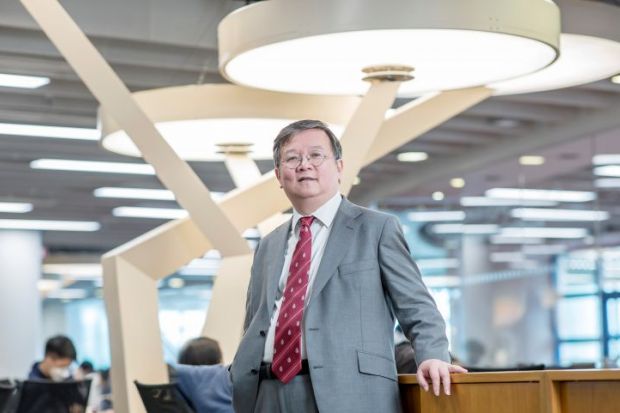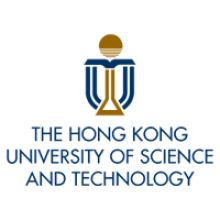Everyone in academia seems to have an opinion on artificial intelligence, but Yike Guo is more qualified than most to speak about it.
The professor and Hong Kong University of Science and Technology (HKUST) provost has been researching AI for the better part of three decades. This spring, when other universities banned the use of ChatGPT, he oversaw its adoption at his institution, encouraging lecturers to work the tool into their lesson plans.
“Weeks after HKUST adopted its policy, I was writing to others,” he said, adding that a consensus soon emerged among Hong Kong universities that ChatGPT should not be blocked.
Campus collection: AI transformers like ChatGPT are here, so what next?
Despite some early concerns, Professor Guo said there hasn’t been any “pushback” to the technology per se, with professors able to decide whether – and how much – to use the technology in their courses.
“We take a liberal view, if you feel that in your class, you’re not sure whether you should use it or not, that’s your choice.” Still, he said that concerns over cheating and misuse have “faded away” as the use of ChatGPT has become widespread at the institution.
The big challenge for teachers is to make their tests more difficult so they cannot easily be answered by AI – and lecturers are already adapting, said Professor Guo. “There seems to be a common understanding that this technology is useful.”
But this acknowledgement underplays the sizeable shift the tool has brought about in mere months. Already, many of HKUST’s teachers are using ChatGPT to prepare for their classes, alongside traditional textbooks. Meanwhile, students are writing their essays with its help – something that most professors allow.
HKUST’s business school was an early adopter, scrapping essay-style exam questions in favour of more “debate” testing students’ reasoning.
In the “hardcore sciences” especially, ChatGPT has earned fans. “Our physics department loves it…it’s a really good way to deepen students’ understanding. They’re always asking fundamental questions.”
While a machine cannot answer these, it can provide learners with a wealth of useful knowledge and equations – ingredients towards answering difficult theoretical questions.
While HKUST hasn’t begun using AI in other areas – such as student recruitment – he thinks the technology is ready to be put in place elsewhere, for instance when hiring senior staff. Seasoned academics have published dozens of papers and ChatGPT could save time by summarising these for a panel, for example.
And testing and recruitment are just the tip of the iceberg, Professor Guo believed.
Today, ChatGPT is essentially an “interactive search engine”, a more “evolved” form of Google, but still a machine that spits back answers to relatively simple questions, he explained.
That is changing fast. Professor Guo predicts that in just a couple years’ time, ChatGPT will become an intellectual sparring partner for academics, forever changing the way that research is done.
“We want it not only to answer questions, but also ask them. Then, it becomes dialogue. You tell it, ‘I have chest pain’, it should ask you, ‘Do you have other problems?’ That kind of system is coming.”
Although machines are still weak at judgement, at evaluating options and making a reasoned decision – something that has been developed in humans over millions of years of evolution – the day AI has a form of “common sense” is “not far away”, with enormous potential for scholars, he said.
“Machines are not enough now,” but in the future, they will turn the scientific process on its head, he said.
“If you start to make an assumption, a hypothesis…you could propose a view and the machine has a view. This kind of learning process becomes possible.”
AI will also get better at validation – checking itself, second-guessing its own assumptions and explaining why it took a certain route to its logical endpoint. This capacity will make it far more “human compatible”, as will its ability to acknowledge room for error, he believed.
“Sometimes it has to tell you, ‘It’s my guess, I’m not quite sure.’”
But for this partnership of minds – human and AI – to take place, people will also have to change.
Scientists must be prepared to “reverse engineer” their mindset, according to Professor Guo.
“In a big way, our tools have expanded and the way of thinking has changed,” he said. “In the past, if we designed a new material, we would do trial and error. In AI, you define a property and then use the machine to generate the material you want with this property.”
But for many students, using ChatGPT is already ingrained. HKUST offers AI as an add-on to its majors. Next year, it will phase AI into its common core curriculum, alongside bread-and-butter subjects such as maths and English.
Gone are the days when AI was seen as the villain in education, he believed.
“In Hong Kong nobody’s talking about [ChatGPT as] the bandit any more,” and universities elsewhere are also beginning to follow suit.
“It’s just like the day we had the search engine come along. It’s certainly becoming more and more acceptable.”
Register to continue
Why register?
- Registration is free and only takes a moment
- Once registered, you can read 3 articles a month
- Sign up for our newsletter
Subscribe
Or subscribe for unlimited access to:
- Unlimited access to news, views, insights & reviews
- Digital editions
- Digital access to THE’s university and college rankings analysis
Already registered or a current subscriber? Login










